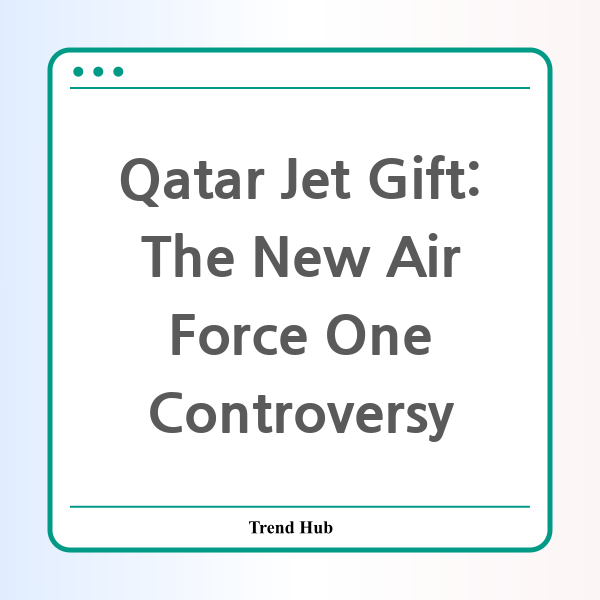* This website participates in the Amazon Affiliate Program and earns from qualifying purchases.

In a surprising turn of events, the United States has officially accepted a luxury Boeing 747 jet from Qatar to serve as a temporary Air Force One for President Donald Trump. This extraordinary gift, valued at approximately $400 million, has sparked discussions and debates regarding security, ethics, and the implications of accepting such a high-value item from a foreign government.
At the core of the debate are the reasons behind Qatar's generous offer and what it means for U.S. political and security interests. With the acceptance of this plane, the Pentagon has acknowledged that it will work closely to ensure that all necessary security measures and operational requirements are addressed. Sean Parnell, the Pentagon's chief spokesman, stated that the aircraft will be modified to meet security standards before being utilized for presidential air travel.
The context of this gift is critical. Qatar has had a contentious relationship with the U.S. due to its support for various groups that have raised national security concerns. This has left many questioning what Qatar might expect in return for providing such an opulent gift. Critics have voiced their worries, expressing that it might not align with the best interests of American security and intelligence frameworks. Former Vice President Mike Pence has also pointed out potential constitutional issues, noting that public officials should not accept gifts from foreign governments. This sentiment was echoed by several lawmakers from both sides of the political spectrum.
Despite the controversy, President Trump has defended the acceptance of the jet. He referred to the offer as "a great gesture" and suggested that declining such a costly aircraft would be unwise. This perspective is indicative of the broader debate surrounding the intersection of politics and international diplomacy. Acceptance of the jet highlights the complexities involved in foreign relations, particularly when presenting a gift that carries such significant implications.
In addition to addressing ethical concerns, the technical aspects of retrofitting the aircraft present their own challenges. Modifications to the plane to equip it for the unique requirements of presidential air travel could potentially take years and cost billions of dollars. Currently, the U.S. is in the process of developing two new Air Force One jets from Boeing; however, those projects are significantly behind schedule and over budget, raising additional questions about the necessity of the gifted Qatar jet.
Ultimately, the acceptance of the Qatar jet reveals the intricate balance that must be maintained in international relations. It highlights the fine line between diplomatic gifts and security risks, particularly when the interests of a foreign government may not align seamlessly with those of the United States. As discussions around this topic continue to evolve, it remains to be seen how the U.S. government will navigate this complex situation and what long-term implications it may hold for national security and foreign diplomacy.
* This website participates in the Amazon Affiliate Program and earns from qualifying purchases.